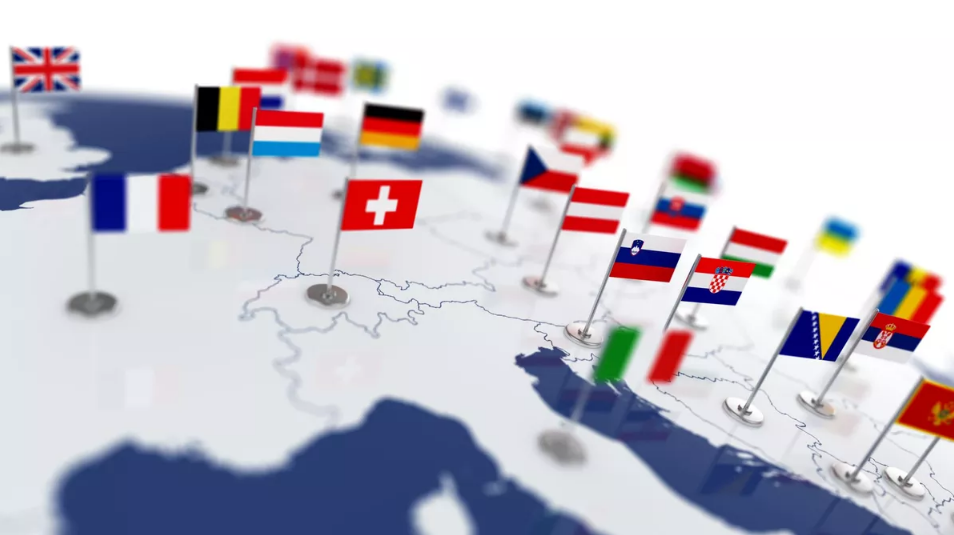
“In the face of the spread of English in science, let us restore the place of French at university.”
From October 30 to November 3, the International Scientific Week of Francophonie takes place in Quebec City. 104359443/Denis Rudy – Stock.adobe.com
Figarofox/Tribune- On the occasion of the International Scientific Week of Francophonie from October 30 to November 3, Quebec’s French Language Commissioner, Benoît Dubreuil, calls on Francophonie stakeholders to work together to strengthen our language in teaching and research.
Benoît Dubreuil is Quebec’s French language commissioner.
Over the past few decades, the English language has gained an unparalleled status in the scientific world. In international publications and meetings, English monolingualism is now the norm. In teaching and education, his progress is undisputed. Sharing a common language provides clear benefits to the scientific community. It facilitates the circulation of knowledge and ideas across national and linguistic boundaries.
However, this new monolingualism leads to increasingly well-known disadvantages. It penalizes researchers whose first language is not English, harms research on locally and nationally relevant topics, hinders the dissemination of knowledge within companies that fund research systems, and harms the quality of training in higher education. The consensus is now well established among politicians and research stakeholders: we cannot take full advantage of science done only in English. But the question arises: how to fix it?
Until recently, translation was a limited solution to monolingualism in science due to its costs and processing times. However, recent developments in machine translation are changing the situation. Today, one click is enough to translate text into the language of your choice. Speech recognition and synthesis can also translate speech instantly.
Responsible use of machine translation is possible. That is why I propose that stakeholders in the French-speaking world take concerted action to maximize the benefits that these technologies bring to science and avoid their risks.
Benoit Dubreuil
However, the use of translation techniques is not without risks. They can compromise content confidentiality and copyright, or introduce minor errors into a seemingly flawless translation. They also risk impoverishing the French language by losing the richness of its vocabulary or by not respecting its peculiarities. Despite these risks, responsible use of machine translation is possible. That is why I propose that stakeholders in the French-speaking world take concerted action to maximize the benefits that these technologies bring to science and avoid their risks.
From October 30 to November 3, the International Scientific Week of Francophonie takes place in Quebec. On this occasion, I present a general opinion entitled: French is the language of knowledge? For a systematic approach to using machine translation in a research settingin which I present a measure for Quebec, France and other French-speaking countries to restore the place of French in science.
In particular, I propose the establishment of a trans-Francophonie coordination center to carry out various tasks. In particular, this center will manage the collection and processing of textual data to build high-quality multilingual collections in all scientific fields. It will revitalize scientific terminology in French and improve machine translation algorithms to adapt them to the specificities of the scientific world.
Universities can ensure the presence of the French language in the scientific events they host, or even translate their most important publications into French.
Benoit Dubreuil
However, her work will go beyond translation and terminology. In order to re-establish the place of French – and multilingualism – in science, expressing oneself with the same voice is essential. The center will rely on the Open Science movement to free scientific texts from their copyrights and enhance their translation into French. Steps will be taken with major scientific publishers to systematically integrate translation into their publishing process and promote multilingual publishing of research on their platforms. Finally, you will develop a discovery strategy adapted to scientific content in French, which will benefit and advance artificial intelligence.
Achieving this ambitious agenda will require collaboration between scientists, lawyers, and information professionals. It must also be supported by action at the local or national level. Indeed, nothing prevents universities and other research stakeholders from working now to promote the French language – as well as multilingualism – in their societies. As I suggest in my opinion, universities can train their communities to make use of machine translation in teaching and research. They can ensure the presence of the French language at the scientific events they host, or even translate their most important publications into French.
All these measures are far from trivial. Ultimately, they will solve a large part of the efficiency and equity problems associated with monolingualism in science, and will lay the foundations for a healthier coexistence of languages.
” data-script=”https://static.lefigaro.fr/widget-video/short-ttl/video/index.js” >

“Organizer. Social media geek. General communicator. Bacon scholar. Proud pop culture trailblazer.”
